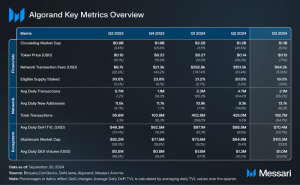In an article published by Bloomberg News earlier today, President Joe Biden’s efforts to showcase a strengthening economy and control inflation are put to the test against a critical everyday indicator: skyrocketing grocery prices.
Former President Donald Trump recently stated that under President Joe Biden’s leadership, the economy has deteriorated to the point where food prices have soared significantly. On February 9, during a speech at the NRA Great American Outdoor Show Presidential Forum in Harrisburg, Pennsylvania, Trump mentioned that food prices are now “40%, 50%, 60% higher than they were just a few years back.”
As Bloomberg points out, since the onset of the Covid lockdown, grocery prices have seen a staggering increase of more than 25%, outpacing the rise in overall consumer prices by five percentage points. This surge poses a significant challenge to Biden’s administration, as regular grocery store visits become a constant reminder to American families of the escalating cost of living.
Bloomberg highlights President Biden’s multifaceted approach to addressing public frustration over rising food prices. He has pointed fingers at food companies and grocery chains, accusing them of exploiting their market power to inflate profit margins at the expense of consumers. Additionally, Biden has sought to connect with the public’s grievances through social media and public speeches, lamenting the phenomenon of “shrinkflation” in food packaging.
[embedded content]
However, as Bloomberg reports, the persistent rise in food costs has begun to erode support for Biden, particularly among key Democratic constituencies, including minority groups and low-income families. These demographics are disproportionately affected due to their higher relative spending on food.
Bloomberg’s coverage extends to the political ramifications of this economic discontent, noting a significant shift among lower-income voters in Georgia—a critical battleground state. Data from a Bloomberg News/Morning Consult poll indicates a preference for Donald Trump over Biden among Georgia voters with household incomes below $50,000, underscoring the potential impact of grocery inflation on electoral dynamics.
According to Bloomberg, national concern over grocery costs surpasses other categories of expenditure, with a vast majority of consumers expressing heightened anxiety. This concern is manifesting in changing shopping behaviors, with individuals opting for more affordable alternatives and adjusting their consumption patterns to mitigate the financial strain.
Bloomberg also sheds light on the White House’s strategy of amplifying criticism towards food companies, alleging that despite improved profit margins, prices have not been adjusted in favor of consumers. This stance is met with counterarguments from the grocery industry, emphasizing efforts to offer value products and maintain price stability.
Economists remain divided on the issue, Bloomberg notes, with some attributing sustained food price markups to factors beyond corporate control, such as global supply chain challenges and extreme weather conditions. Nonetheless, the immediate outlook for grocery prices remains a concern, with few expecting significant relief before the upcoming November election.
Featured Image via Pixabay





















